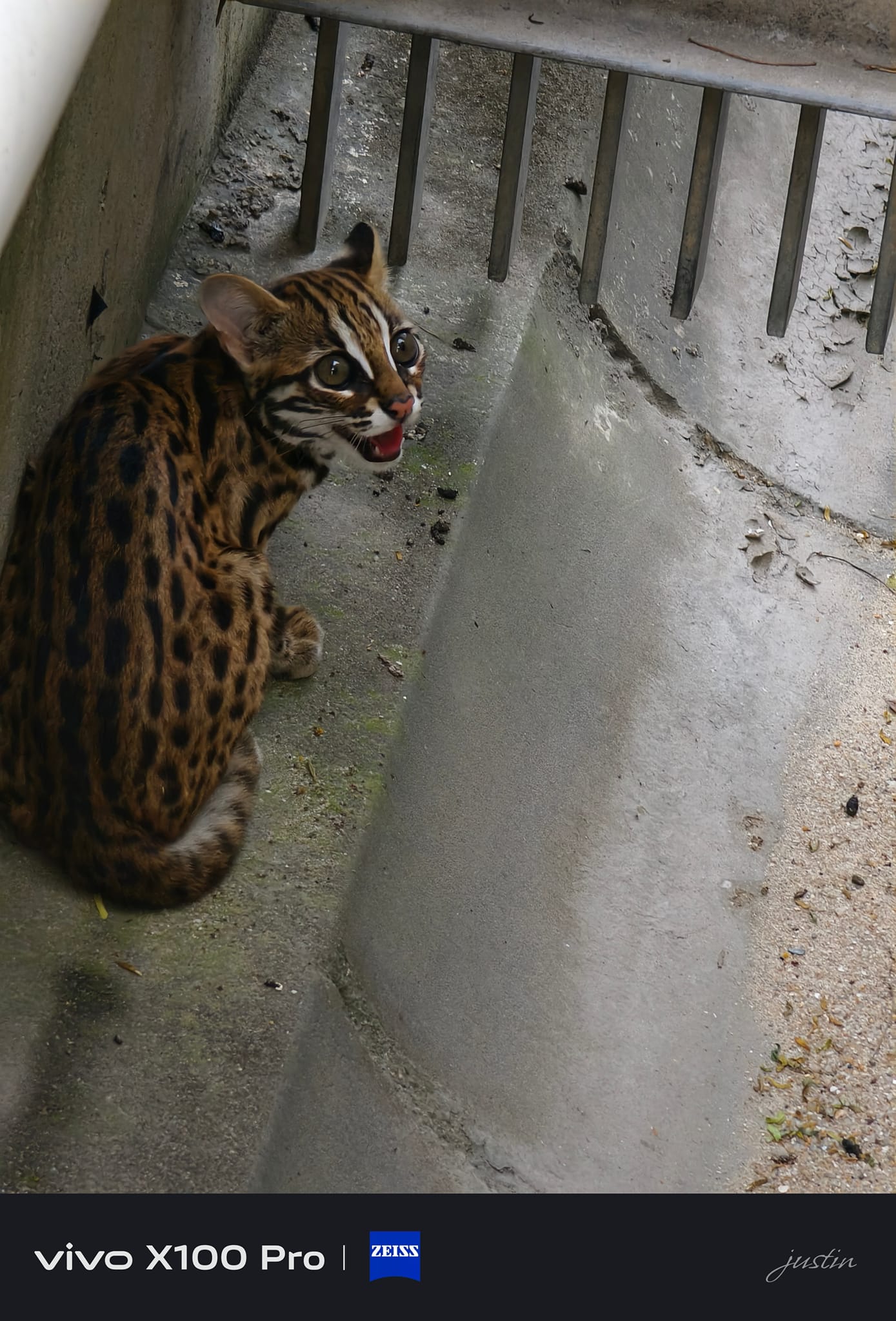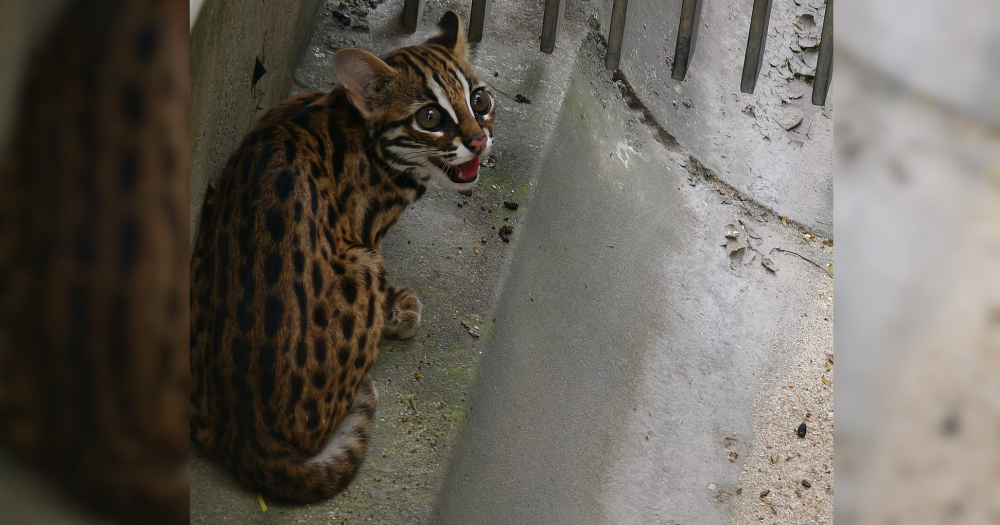A man in Singapore claimed he saw a leopard cat, the rarest feline here, at Changi recently.
In a Feb. 8 Facebook post, the man shared a photo of the cat sitting next to what appears to be a drain.
In the caption, he asked if people were able to identify what type of cat this was.
His post was scant of details, and he did not share when the sighting took place, as well as how he stumbled across the cat.
 Photo from 曾少 / FB
Photo from 曾少 / FB
Many in the comments urged the man to report the sighting to various organisations, including the National Parks Board (NParks), Animal Concerns Research and Education Society (Acres), and the Singapore Wildcat Action Group (SWAG), which seeks to raise awareness of different wildcat species around the world.
The man subsequently noted in a comment that several people had privately messaged him to ask where he saw the leopard cat.
He emphasised that he will not reveal its location, and "is unable to share further details", but had reported the sighting to SWAG.
The man added that the location specified in his post was not the first location the cat had been spotted at, and urged people not to "waste their time" looking for the creature.

Could have come from Pulua Ubin or Pulau Tekong
Acres co-CEO Kalai Vanan told Mothership that he did not receive any calls about this sighting.
On the other hand, SWAG co-director Vilma D'Rozario shared that she was aware of the Facebook post and was "excited" to learn of this new possible sighting in Singapore.
She also confirmed that the man who saw the cat had indeed reported the sighting to SWAG late on Feb. 8.
D'Rozario told Mothership that the group also consulted mammal researcher Marcus Chua about the potential sighting.
"[He] reassured us that he didn’t think the leopard cat was trapped in any way and that it should have left the area by now."
She added that the group has never seen leopard cats at Changi, although they know of a case of a leopard cat roadkill in the area a few years ago.
D'Rozario also posited that the rare feline might have swum over from Singapore's offshore islands, Pulau Ubin and Pulau Tekong.
According to SWAG's website, leopard cats can "swim efficiently across rivers", and this capability was how mainland leopard cats were able to colonise offshore islands.
More about leopard cats
The leopard cat is Singapore's last remaining wildcat species, and is critically endangered according to the Singapore Red Data Book.
Chua previously told Mothership that there were only three other confirmed sightings of leopard cats in 2021, none in 2020, and only one in 2019 — though it was, unfortunately, a roadkill.
A study done by Chua in 2012 estimated that no more than 20 leopard cats were living on the Singapore mainland.
The study also recorded 29 leopard cats in Pulau Tekong, using camera traps and night surveys, among other methods.
Leopard cats are not to be confused with Bengal cats, a breed of hybrid cat created from crossing domestic cats with leopard cats.
Those who would like to find out more about leopard cats can do so at The Leopard Cat Campaign Exhibition held at the Sustainable Singapore Gallery till Feb. 19.
Poaching illegal in Singapore
In the comments section, some Facebook users cheekily asked the man who sighted the leopard cat at Changi to take it home.
 "Bring it home, and then you don't need to worry about living expenses anymore," the comment read, likely referring to a "life in prison".
"Bring it home, and then you don't need to worry about living expenses anymore," the comment read, likely referring to a "life in prison".
Bringing any wildlife home is considered poaching, which is illegal in Singapore.
Under the Wildlife Act, it is an offence to kill, trap, or take any wildlife without approval from the Director-General/Wildlife Management.
In the case of protected wildlife, like a leopard cat, offenders face a fine of up to S$50,000, a jail term not exceeding two years, or both.
Other than leopard cats, 36 other species of wild animals are listed as Protected Wildlife Species, including otters, fruit bats, cream-coloured giant squirrels, and Sunda pangolins.
Members of the public who see wildlife injured or in distress, including leopard cats, can call NParks' helpline 1800 476 1600 or Acres' 24-hour wildlife rescue hotline 9783 7782.
They can also submit details of leopard cat sightings to SWAG.
D'Rozario also urged people to slow down when driving near nature reserves and to watch for wildlife on the roads.
Those who spot any suspected poaching activities can also report it via www.avs.gov.sg/feedback or call the NParks at 1800 476 1600.
Top photo from 曾少 / FB
If you like what you read, follow us on Facebook, Instagram, Twitter and Telegram to get the latest updates.



